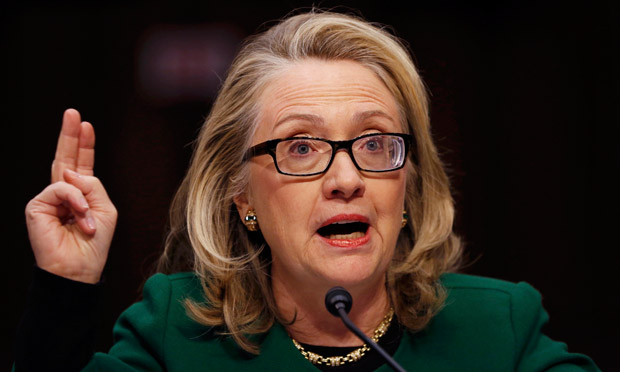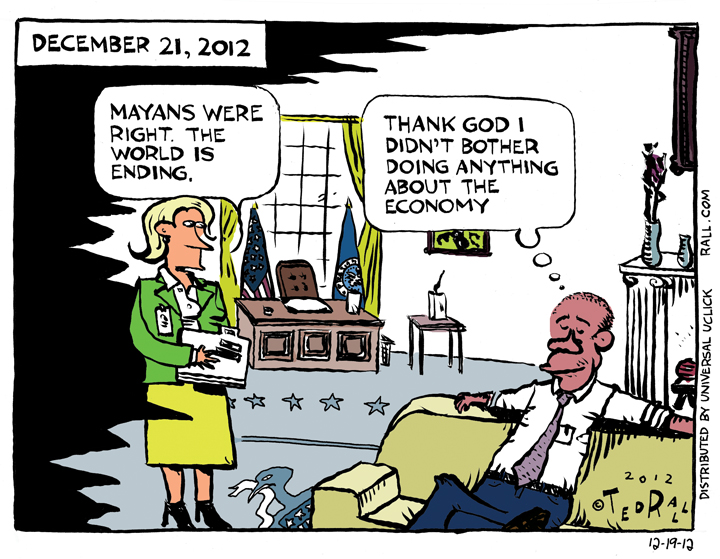
Hillary is the talk of 2016. Will she run? According to the pundit class whose water cooler speculation gets repackaged as “conventional wisdom,” the nomination is the former First Lady’s for the asking. Following a coronation that saves her cash and bruising primary battles, it’s currently hard to conjure a Republican who can stop her from taking the general election too.
But to paraphrase a recent viral music video, there’s one thing that no one knows:
What would President Clinton II do?
I posed this question to “Ready for Hillary,” the main pro-Hillary Super PAC. “Ready for Hillary focuses on grassroots organizing, not policy,” replied Seth Bringman. “Policy decisions would be up to the campaign if Hillary runs, which we are certainly encouraging her to do. We amplify the causes Hillary is advocating for and spread the word to our more than one-and-a-half million supporters. We have done so when Hillary spoke out on immigration reform, health care, voting rights, unemployment insurance, and the government shutdown.”
Given that the pre-primary season doesn’t begin for another 18 months, it’s a little early to expect a fully fleshed-out policy platform from a probable candidate. But HRC isn’t a fresh young thing. She’s been kicking around politics for decades — so it’s more than a little strange that neither her fans nor her enemies has a clue what she’d do about a host of issues.
Long before 2000, Al Gore’s longstanding interest in climate change signaled that the environment would have been a priority in his administration. Beginning with his testimony in the 1971 Winter Soldier hearings, John Kerry’s career path predicted a preference for diplomacy over war. On the other hand, it was similarly clear long before 2008 that a John McCain Administration would have been belligerent and quirky, featuring occasional alliances of convenience with Democrats.
So, what about Hill? The only agenda item anyone could have reasonably predicted was a revival of HillaryCare — which is now basically Obamacare. The biggest arrow in her quiver is gone.
Ready for Hillary says it has raised $4 million from 33,000 donors during 2013. That’s a lot of money. You’d think the donors would know what they’re buying, but if that’s the case, they’re keeping it to themselves.
Hillary leads every poll of the Democratic field for 2016. But why? What is it about her that makes some liberal voters swoon?
I combed the Internet looking for signs of something approximating a political agenda. I pushed out the following question to social networks: “Support Hillary for 2016? Can you tell me what she would DO?”
The closest approximation to an answer came back: “She would be the first woman president.”
Yeah, we knew that — but would she be a first woman president who fires drones at wedding parties, or a first woman president who pushes for a $20/hour minimum wage, or a first woman president who continues the first black president’s policy of not using government to try to create jobs? Would she be a first woman president who closes Guantánamo? Would she be a first woman president who continued NSA spying on Americans? Would she be a first woman president who adds a public option to the Affordable Care Act?
As far as I can tell, the (Democratic) arguments for Hillary boil down to the following talking points:
- Unlike Obama, who let himself get rolled by the Republicans, Hillary is tough and battle-tested. She’s a good negotiator.
- She’s an experienced manager. “Ready on day one,” she argued in 2008. She knows everyone and everything in government.
- Like her husband, she’s somewhat more liberal than Obama.
- She’s pre-disastered, thus electable. If there were any more Travelgates, Whitewaters, etc., the media would have uncovered them by now.
These are personality traits, not prescriptions for America.
Hillary Clinton isn’t a candidate — she’s a brand. She doesn’t offer a set of ideas; she projects a vague sense of competence that feels absent in the current White House. (Didn’t she used to hold some kind of big job in that place?) Despite having held high posts in government, she can’t point to a single major legislative or ideological achievement — but that doesn’t matter to her supporters.
Mostly, Hillary represents the potentiality of a historical symbol: first woman president. As soon as she takes the oath of office, her campaign’s biggest goal, shattering the ultimate political glass ceiling, will have been achieved.
If this feels familiar, it should. Senator Barack Obama was Clinton in 2006 and 2007, projecting calm after long post-9/11 years of jittery Bushisms, with a light resume that served as a blank slate, allowing people to project their hopes and ideals upon him. In the end, all that mattered was the beginning: winning as a black man. For the Obamabots, all that followed — protecting Bush’s torturers, the bankster bailouts, the drones, the NSA — was beside the point of their politics of identitarian symbolism.
What will happen to the long-term unemployed under Hillary? If 2008 serves as a guide, the 2016 campaign will pass without Americans much talking or thinking about such questions.
(Support independent journalism and political commentary. Subscribe to Ted Rall at Beacon.)
COPYRIGHT 2014 TED RALL, DISTRIBUTED BY CREATORS.COM

